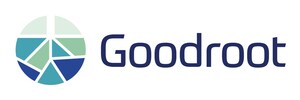COLLINSVILLE, Conn., Nov. 10, 2021 /PRNewswire/ -- Rapidly rising healthcare spending in the US has reached $3.8 trillion per year, which is roughly equivalent to the entire revenue of the federal government. National healthcare expenditure is projected to reach $6.2 trillion by 2028, nearly matching the total federal budget.
"This is completely unsustainable," says Michael Waterbury, CEO of Goodroot, a community of companies dedicated to lowering healthcare costs and increasing access to care. "When healthcare costs are greater than the total revenue collected by the federal government, it's no surprise that nearly a third of working Americans are struggling with medical debt. Healthcare costs are a tremendous drain on the US economy and the industry is ripe for disruption."
Companies like Famulus Health offer tools to reverse the trend of rising healthcare costs. Famulus taps into prescription cash price networks — discounts outside of insurance that are lower than copays for some medications — to enable individuals and organizations to lower their prescription drug spending.
"Complexity is a major driver of cost in the US healthcare system," says Mike Szwajkos, founder and CEO of Famulus, a Goodroot affiliate. "But technology is catching up. There is a huge demand from employers, healthcare payers and the American public to lower healthcare costs, and the fact that we're able to circumvent the opaque pricing mechanisms in the pharmacy marketplace and confidently provide the lowest possible price is a competitive advantage."
"There's a great deal of unfairness in the healthcare marketplace toward companies with fewer than 500 employees," says Erik Wallace, president of CoeoRx, a Goodroot affiliate that provides more leverage, choice and savings to organizations navigating the complex world of pharmacy benefit solutions. "Most employers need a pharmacy benefit navigator because they simply aren't equipped to find and fight for the best deals on their own. Having expert help and access to data often means millions in savings."
In addition to preventing real competition, complexity in the healthcare system means billing errors often go undiscovered adding to the overall cost of care. Auditing companies catch these mistakes but aren't incentivized to prevent them from happening again.
"As much as 80 percent of medical bills contain an error," says Jim Harper, president of Penstock, a Goodroot affiliate. "Sometimes charges are many multiples of what they should have been. We recoup these funds for our clients while also working with our clients and healthcare providers to permanently remove from the system the misunderstanding that created the mistake in the first place."
"The future of healthcare is focused on lowering medication cost and improving patient outcomes," says Ralph Pisano, RPh, president of RemedyOne. "Organizations must explore different options and position themselves to utilize those solutions that lower drug cost and generate significant savings."
RemedyOne, the first Goodroot company, created a formulary management only solution that focuses on delivering the lowest net cost for drugs. For example, in partnership with a health plan for college and university students, RemedyOne created a student formulary that drastically lowers costs on mental health medications, birth control, and other categories frequently prescribed to students. Students pay nothing for many drugs.
"Sweeping changes to healthcare policy designed to lower costs tend to backfire and end up accelerating increases," says Waterbury. "That's why Goodroot is reinventing healthcare one system at a time. By empowering healthcare experts to innovate the corner of the system they know best, we are pushing the healthcare industry toward a fair cost of care."
Media Contact:
Jason Simms
860-526-1555
[email protected]
SOURCE Goodroot

WANT YOUR COMPANY'S NEWS FEATURED ON PRNEWSWIRE.COM?
Newsrooms &
Influencers
Digital Media
Outlets
Journalists
Opted In






Share this article